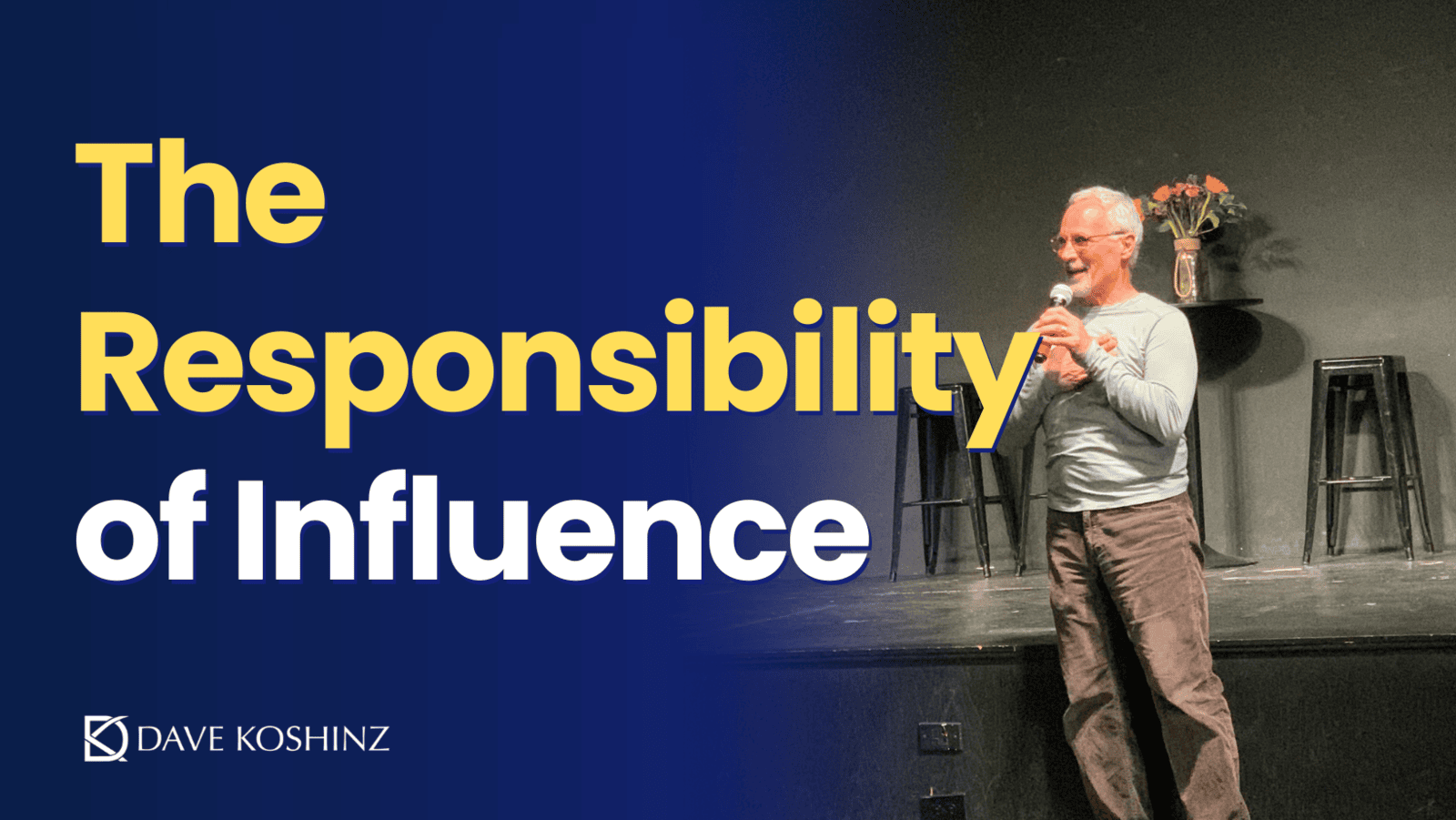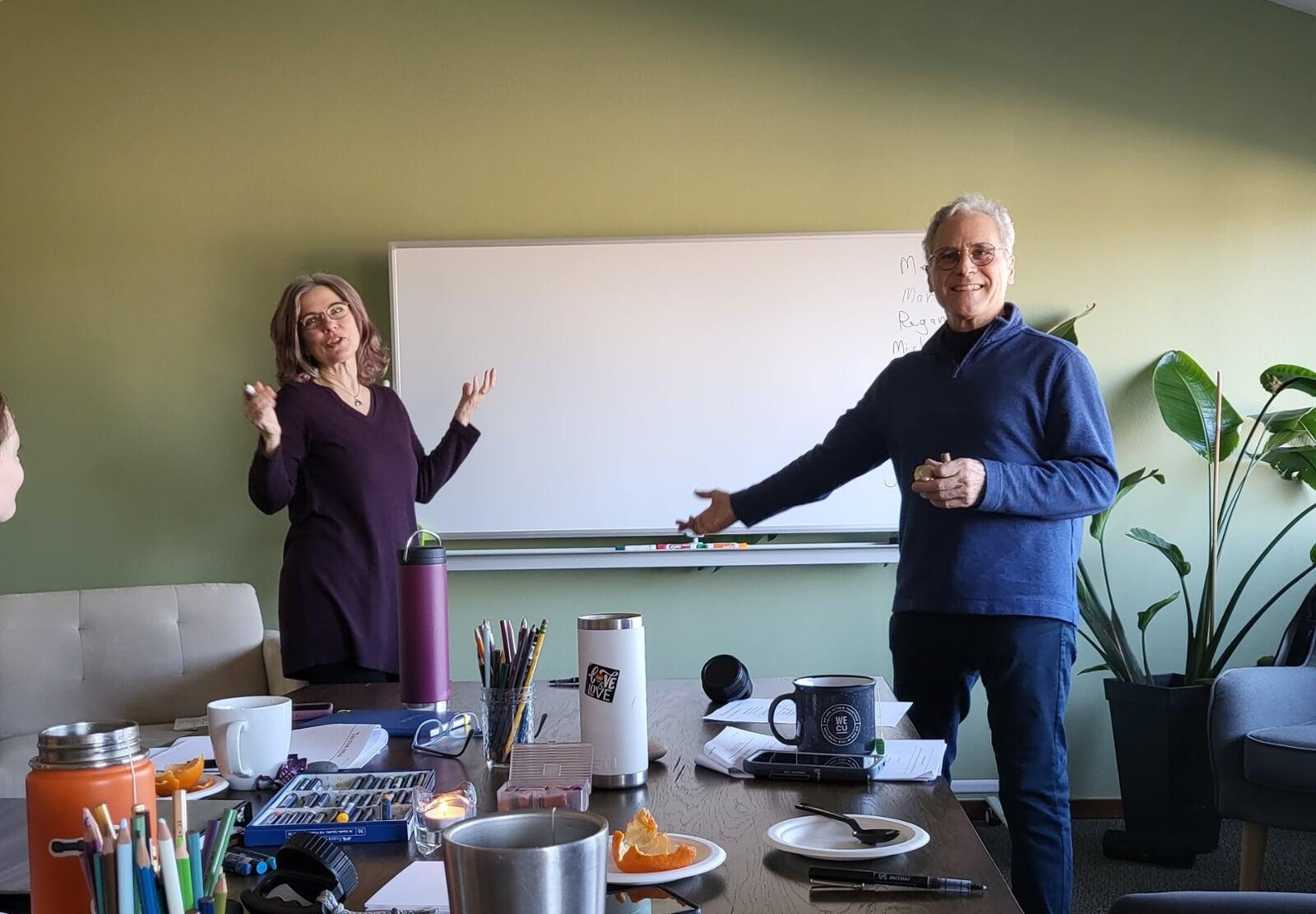
I’ve known many good-hearted people who shy away from influencing others. They worry about manipulation, coercion, or the risk of causing harm—unintentionally or otherwise.
But here’s the truth: influence isn’t optional. It’s a fact of human interaction. Our nervous systems are constantly in conversation—through body language, tone of voice, facial expression, even breath and presence. Whether we intend to or not, we affect each other.
The real question isn’t whether we influence—it’s how. Will we wield our influence with intention and care? Or will we step aside and leave that space to be filled by louder, less thoughtful voices?

Influence Is Inevitable
If you’ve ever walked into a room and felt the tension before anyone spoke, you’ve felt the quiet, invisible force of influence. Our moods, our silence, our decisions—they all send signals that ripple outward. Even when we disengage or stay silent, we are still shaping the environment.
In leadership, we see this constantly. A manager who avoids tough conversations doesn’t neutralize conflict—they permit it to fester. A team leader who stays passive during a group’s struggles still impacts the group—but often by increasing confusion or frustration. When wise people hold back, others—less equipped, less ethical, less attuned—step forward and steer the culture.
Fear of Influence Is Understandable—but Not an Excuse
Many avoid stepping into influence because they’ve seen power misused—by corrupt leaders, aggressive salespeople, or self-interested authorities. But avoiding influence for fear of misuse is like refusing to use fire because it can burn. Fire also cooks, warms, and brings people together. Influence, used responsibly, brings clarity, momentum, and healing.
Think of the skilled employee who hesitates to speak up in meetings, believing they’re being humble or polite. But in staying silent, they withhold valuable insights. Meanwhile, someone more vocal but less informed can steer the conversation into unproductive territory.
Or the community leader with deep integrity who hesitates to speak out, afraid of appearing self-promoting. The absence of their voice doesn’t leave a void—it creates room for someone less thoughtful to dominate the narrative.
When Thoughtful People Lead, Everyone Benefits
History is rich with examples of people who chose to embrace their influence—and changed the world for the better.
Martin Luther King Jr. could have stayed in his church pulpit. Eleanor Roosevelt could have remained a behind-the-scenes First Lady. Yvon Chouinard could have built Patagonia solely for profit. But they didn’t. They stepped forward, using their influence to serve something larger than themselves.
And this happens every day, too. When a teacher takes time to mentor a struggling student. When a manager gives a quiet employee a chance to shine. When a friend shares hard-won wisdom in a moment of need. These everyday moments of influence can have far-reaching impact.
The Risk of Holding Back
We live in complex, uncertain times. Social, political, and economic shifts have many people retreating—choosing comfort over contribution. But when the wise go quiet, the reckless take the wheel. The thoughtful must not abandon the arena.
Influence is not about controlling others—it’s about showing up. Modeling clarity. Creating possibility. Choosing courage when silence would be easier. And yes, it’s risky. But not nearly as risky as letting only the loudest voices shape our future.
How to Step Into Your Influence
If you’ve been hesitant, here are a few invitations:
Acknowledge Your Influence: You’re already affecting others. Own that reality.
Use It Intentionally: Choose to uplift, inspire, challenge, and empower.
Speak When It Matters: Don’t let fear of judgment silence needed insight.
Model What You Value: Integrity, compassion, resilience—live it visibly.
Invite Others Forward: Encourage the quiet voices. Share the platform.
Influence is not inherently good or bad. It’s a force—and like any force, its impact depends on how it’s used. When kind, thoughtful, principled people embrace their influence, they help create a world that works better for everyone.
The world doesn’t just need more noise. It needs more meaningful voices. More steady presence. More intentional leadership.
So take the risk. Step forward. Speak up. Influence—not because you want power, but because you care.
Because your influence is already happening. The question is, how intentionally will you choose to use it?

